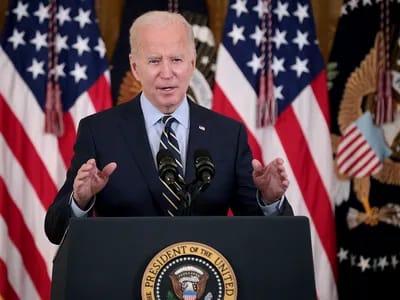The US President, Joe Biden, has announced the delegation that will attend the inauguration of Nigeria’s President-elect, Bola Ahmed Tinubu on May 29 in Abuja, the capital.
A statement from the Whitehouse revealed that Honorable Marcia L. Fudge, Secretary of the United States Department of Housing and Urban Development, will lead the delegation to Nigeria.
Other members of the presidential delegations are Mr David Greene, Chargé d’Affaires, a.i., US Embassy Abuja, the Honorable Sydney Kamlager-Dove, United States Representative (D), California, the Honorable Marisa Lago, Under Secretary of Commerce for International Trade, US Department of Commerce, General Michael E. Langley, Commander of US Africa Command, the Honorable Enoh T. Ebong, Director, US Trade and Development Agency, the Honorable Mary Catherine Phee, Assistant Secretary of State for the Bureau of African Affairs, US Department of State, the Honorable Judd Devermont, Special Assistant to the President and Senior Director for African Affairs, National Security Council, and the Honorable Monde Muyangwa, Assistant Administrator for the Bureau for Africa, U.S. Agency for International Development.
“The U.S. is the largest foreign investor in Nigeria, with U.S. foreign direct investment concentrated largely in the petroleum/mining and wholesale trade sectors. At $2.2 billion in 2017, Nigeria is the second largest U.S. export destination in Sub-Saharan Africa,” according to the State Department.
No fewer than 65 world leaders are expected to attend Tinubu’s inauguration on Monday, May 29, 2023.
The Independent National Electoral Commission, INEC, declared Bola Tinubu, the candidate of Nigeria’s ruling party, APC, as the winner of February 25 presidential election.
The former Lagos State governor defeated 17 other candidates who took part in the election.
He polled a total of 8,794,726 votes, the highest of all the candidates, therefore meeting the first constitutional requirement to be declared the winner of the keenly contested race
He also scored over 25 per cent of the votes cast in 30 states, more than the 24 states constitutionally required.

